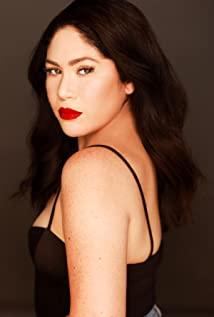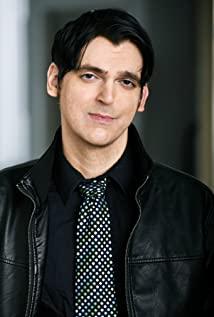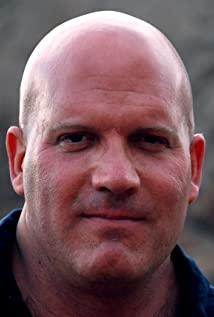After watching "Battle Angel: Alita" coming out of the cinema, I didn't expect this film to have bad reviews. I guess that the image of women as the subject of battle will cause discomfort to a small number of people, but in the context of the apocalypse and the transformation of people, it should be acceptable to watch it for ten minutes, right? However, I was wrong. The bad reviews came from men and women, and the most common reasons were "the heroine is a love brain" and "does things without strategy". I, who haven't written a film review for many years, couldn't help but write a serious one when this film was released to sing my difference. I declare in advance that it is purely a film review, not directed at the original "Gun Dream" (I haven't read it yet); the lines are from my unreliable memory, and errors and omissions are inevitable.
Spoiler alert, warning, warning.
Let me first go back to the three major complaints about the heroine image in the bad reviews: Alita is naturally inclined to violence; Alita is brave and reckless; Alita loves brain.
First of all, is Alita really "innately prone to violence"? Many people think that Alita is the Monkey King, and when she has a violent temper, she will be beaten indiscriminately - "Why do you need to be reasonable when you can move your fist?" Let's think about it carefully, how did such an impression come about? The most direct reason is obviously what her doctor adoptive father said: "You are a berserker, and you are naturally attracted to fighting." The adoptive father is the intellectual authority figure in this film (I am from the "heavenly realm" Salem, who knows Vic The inside story of many scams, and he will repair and transform people), and he is a loving father who truly loves Alita, saying that she is a violent maniac, how can it be wrong?
Sorry, the adoptive father is really wrong here. What attracts Alita most is not fighting, but life and beauty. She uses violence to protect life, to protect the beauty that is fragile in the face of power, and to allow ordinary people to live in peace without having to lift a sword. Although known as the berserker of the Fire Alliance, she actually has a heart that belongs to a knight.
Let's go back to the beginning of the movie. Alita showed her fighting stance for the first time in order to rescue a stray dog from under the ruthless iron wheel of the mechanical centurion. This is a typical rescue of the weak and the embodiment of her love for life. Before that, she herself stood stupidly in the street, (after being resurrected) was almost run over by a vehicle that would not avoid pedestrians for the second time, and was suddenly taken away by Hugo without showing a fighting form, all of which showed that she was concerned about her own safety. Not vigilant, and will not have the will to fight after being frightened, not a "mad warrior" who is born bloodthirsty and combative. Unlike what her adoptive father said, "You are naturally attracted to fights", her fighting spirit is all motivated by feelings, and every fight is very reasonable-the first battle killed two reformers and seriously injured Gruishka. It's because of protecting the adoptive father, in the dungeon to kill Gruishka to get rid of the murderer (and the dog) murderer, killing the opponent in the game is out of self-defense after knowing the conspiracy of these people, breaking the centurion. , Gruishka and assassinating Victor are to avenge Hugo (in fact, there is also Kiren, but she didn't know it at the time), and at the same time shake Nova's rule over the Iron City. What's wrong? What's wrong? There are no innocent ghosts under her sword, and no senseless enemies in front of her. If she really loves violence, why does she stop immediately after solving the problem every time? She didn't even kill Zhapan who framed and seriously injured Hugo, but disfigured her face and grabbed the knife and let him escape. It can be seen that she has a definite sense of justice in her heart, and she clearly knows who should die and who should not die. Rape, how can you kill more?" The self-control is amazing. Apart from revenge, the only time she took the initiative to provoked a fight was a group fight in a bar. I will analyze it in detail in the second point, but I will skip it here. Alita is indeed sensitive to fighting, but let's not forget that both gangsters and police are sensitive to fighting. The difference is who is sensitive to provoke disputes and who is to end disputes. I think Alita is the one who came to end the dispute.
Even the adoptive father himself later changed his mind and said, "(The Berserker's body) is just your body, and there is no right or wrong in itself - right and wrong are up to you." I think it means that the adoptive father has changed his mind and no longer thinks that Alita is a violent maniac. So, why did the adoptive father say that she was naturally attracted to fighting? Here the video is left blank for our own interpretation. You can understand that the adoptive father understands the behavior of the berserker of the Fire Alliance and thinks that it is inevitable for her to install the Fire Alliance body, so he first persuades and takes a precaution; The daughter is nostalgic. Since she has installed her daughter's body for Alita, she doesn't want to take it down, so she finds an excuse to shirk the blame-maybe the adoptive father himself didn't know the difference.
Second, is Alita really reckless? I admit, she's not a wise man who can strategize and win thousands of miles away, but her outspokenness (quick hands?) and reluctance to explain make it easy to underestimate her resourcefulness. Let me give an example: Why did Alita know to kill Victor after Hugo died? Why does Alita know that Victor can be found by going to the factory that manages the bounty hunters? How did Victor, as the mastermind behind the control, be exposed?
Note that when Alita said goodbye to Hugo, in front of her adoptive father and the nurse, she said: "There is one thing I must do. I will come back to you." This shows that she has already discussed with her adoptive father to kill Vic. There are many things, and her adoptive father, who has always been against her fighting and killing, is not against it at this time. She also said to her adoptive father: "It's all my fault." This line is crucial, showing that she already knew the deep reason why Hugo was killed - not just because Zapan wanted to get revenge on her by killing Hugo, behind the scenes Another black hand. If it is just understood as "I shouldn't provoke Zapan to fight in the bar, or Zapan will not come to harm you", then Alita's next shot should be to kill Zapan. But she ignored Zapan at all, indicating that her and Zapan's debts had been settled in one stroke, and that "my fault" did not refer to bar fights. Then what would it be? How did she lead her on the road to assassinating Victor? Let's restore Alita's possible thought process.
The adoptive father reported Gruishka's indiscriminate killing of innocents at the time, but Gruishka was not on the factory's bounty list. This was the first clue.
The adoptive father saw that the so-called "factory team" who wanted to kill Alita in the game was actually a combination of bounty hunters and fugitives who were offered a bounty. This was the second clue.
Hugo said that he knew Victor, had a long drinking conversation with Victor, and wanted to give him money in the future. He also said that he would rob and sell the body parts of modified people.
The adoptive father once rescued a patient whose body parts were robbed. The man once said angrily: "When I was robbed of body parts, the centurion was watching, but he didn't care about me at all!" This is the fourth clue.
Alita saw the Flying Chain Claw (I don't like the translated name, I picked it up blindly) who once belonged to the star of the football game appeared on Gruishka who lost an arm. This is the fifth clue.
Hugo said that when he was targeted by Zapan, he was going to quit the business of robbing and transforming human body parts. This is the sixth clue.
Alita saw that Hugo was on the reward list for murder, and Hugo insisted that he did not kill, which is the seventh clue.
Combining clues one and two, it can be known that Victor not only controls the ball game, but also controls the factory and the underground demon, and uses the factory to rule unjustly. Combining clues three, four, and five, it can be known that the way Hugo and Victor met was the robbery and trading of sinful parts, and the factory provided an umbrella for this. Therefore, if Hugo wants to wash his hands in a golden pot, Victor will not let him wash his whites, and sooner or later will find a way to silence him to cover up the double injustice of the game and the factory (plus the above mentioned by his adoptive father) The Salem scam is actually a triple injustice, but Hugo doesn't know the third). Hugo is in love with the transforming person Alita, and it is no longer a secret in Tiecheng, so is his idea of washing his hands in a golden pot, in the eyes of Victor, who is knowledgeable about the world, is it obvious? To prove this, let's insert a God's perspective that Alita can't see: Hugo and the robbery gang officially broke up on the night of the ball game, but his robbery buddy said angrily "you can quit, anyway, recently there are You don't come in half of the cases!" So Victor didn't need Zapan to tell him "Hugo is going to quit", he would know if Hugo was there every time he traded. Back to Alita's perspective. Combining clues 6 and 7, it can be known that Zapan's frame-up was the fuse, giving Victor a godsend opportunity to kill Hugo in an open and fair way; but even without this opportunity, he still wanted Hugo to die.
You ask how can I be 100% sure that it was Victor and not Zapan who wanted Hugo to die? It's very simple, because God's perspective tells us that Qilian received a call from Victor in the church and asked her if she had seen them. If Victor just wanted Alita to die, he wouldn't ask "them", only "she". Because Alita rushed out of the game suddenly, no one except the people who set up the game to separate them knew that her purpose was to rendezvous with Hugo - because no one could have imagined that this was a long-planned double match. kill.
The conclusion is that, for justice and love, Alita wants to kill Victor-and Victor, as the actual controller of the factory, can be found by smashing the factory. And when Alita said "it's all my fault", she should be referring to the fact that she fell in love with Hugo as a reformer, which caused Hugo to want to quit the robbery gang, which led to the murder. (At this point, thinking of the scene where she asked Hugo before the two kissed for the first time, "Would you mind that I'm not fully human?" and before the ball game she asked her adoptive father, "Can human beings really fall in love with transformed people?" Heartbroken, Hugo is right, this girl Alita is really the most human person I have ever met.)
Back to Alita's IQ. It should be noted that clues 3, 5, 6, and 7 are all known by Alita herself, but not by her adoptive father. From seven scattered clues, the terrifying truth was pieced together. Even if Alita did not do it alone, but worked with her adoptive father, she was also the main planner. We can't underestimate her IQ and say she's intrepid just because the film handled this scene in the dark.
Here is also an analysis of the bar group racking incident that made Alita's IQ much criticized. I think the reason for the bar group fight incident is Alita's dual psychological dilemma - first, she found the Berserker's body but her adoptive father wouldn't give her a replacement, which prevented her from advancing the most crucial task of "knowing myself", She was also labeled by her adoptive father as "you are naturally attracted to fighting". She was frustrated and rebelliously acted as "you said I was violent, so I will show you violence"; secondly, she fought against a person. Gruishka, who is about to be chased, is not sure of winning. He wants to change the situation of isolation and helplessness, and also wants to test whether he can pick out one or two allies who have both humanity and means from the pile of bounty hunters. . It's not a good idea to open up a group of ridicule and provoke a group fight, but Alita did test out the weight of all the bounty hunters in a short period of time, and also effectively relieved her frustration. During this period, Alita showed the psychological characteristics of many adolescent girls: I hope that my opinions will be valued by relatives like adults, but I am not good at using words to win support, so I am so angry that I punch the operating table; I hope I got the approval of my relatives, so I stopped (almost) immediately after my adoptive father arrived. Alita is not a perfect girl (she also said that she doesn't want and can't be the perfect daughter of her adoptive father), but I am willing to understand and accept such imperfection, because she is still growing up, still looking for herself, and she is really quick-tempered. It's just a glitch.
Third, is Alita really a love brain and can't tell right from wrong? Right and wrong, even in the face of love, she has to distinguish right from wrong. This can be seen from the fact that she must ask whether Hugo killed someone, and in the grief of her lover's serious injury, she can remain rational, not take anger on Zapan, and focus. The assassination of Victor is also another piece of evidence.
As for whether Hugo is worthy of her love, and whether it is the right way for her to take the initiative to expose her heart and dedicate it to Hugo, I think it involves subjective value judgments, and everyone's opinions must be different. I personally think that Hugo is worthy of her love, because he knows what is wrong, and he can be improved. I don't ask others to understand love like I do, but I hope everyone can know that there are some people in the world who choose to give their everything to love like this, and I hope everyone respects this choice. It's not that I don't know that I will be hurt and suffer, but I choose to love like this even if I am hurt and suffer, because I have such courage. That's one of the things I love about Alita.
In addition, I want to do justice to the poor-looking Hugo: he persuaded the heroine to participate in the ball game, not knowing that the ball game was a trap. There are always people who think that Hugo didn't take Alita's heart because Hugo had promised Victor to trick her into going to the ball game in exchange for the chance to go to Salem, so there was no need to sell the heart for money. The reason is that it was said in the dialogue between Victor and Kirin. The problem is, Victor can lie. The relationship between him and Qilian is very delicate at this time. They are lovers and partners, but they are also wary of and deceived each other. From the moment Hugo woke up, he told Alita "I met Victor last night and drank wine" without any intention, and it can be known that Hugo did not think that Victor had any bad intentions against Alita. Otherwise why mention it? Contrast that with how strict his mouth was before he went to rob body parts, and only said "something" (insert, everyone except the naive Alita can see that there is a problem. Hugo's ability to lie is really average), here He said Victor's name lightly and cheerfully, and talked about not saving enough money for Salem, and at first glance he seemed to be lighthearted. So what exactly happened that night? Most likely, after Hugo was drunk, he said that he thought Alita had a talent for playing, and Victor suggested that he train her to play and lure him with winning bonuses. This is in line with Victor's "smoothing the boat" style of doing things, and also in line with his greedy character: you can play Hugo round and round if you don't open a blank check, why should you open it? "I promise him to go to Salem" is nothing but a lie to Qilian.
As for why he lied to Qilian, I tend to think that he wants to tear up Qilian's last bit of trust in the truth, goodness and beauty of the world, in order to completely control Qilian. In the film, Qilian's struggle between her ex-husband and her boyfriend is an interesting dark thread: they symbolize the extremes of poverty and luxury; Wandering around. In the end, I was delighted to see that she chose kindness - although Victor, who could not afford to lose, was able to silence her (but her brain is still there, I look forward to her being transformed into a human being in the next movie), but she still lost .
After answering the three questions of the soul, I will say why I like the image of Alita very much. She is the best knight figure I have seen on the big screen in the past two years. Looking through some reports, I didn't see anyone using the word knight to describe her, but she fits the image of a knight in my mind. Just think about it, she dipped in the blood of the puppy Gruishka just killed, drew two bloodstains on her cheeks representing the Berserkers of the Fire Alliance, and said the line: I do not stand by in the presence of evil. Think about how similar this line means to "When the road is uneven, someone will shovel, and when the situation is uneven, someone will take care of it", and then you can see why this image created by Japanese comics and adapted by Hollywood actually has the spiritual core of a knight. Confined to reality, I can't eradicate the evildoers in this world, which made me yearn for Alita's image of a knight when I saw her step into this path without hesitation. A knight can be naive or impatient, but she must be brave and determined. Alita, who fought to the last finger, Alita who had no luck but also said "Fuck your mercy", Alita who also challenged the omniscient and almighty Nova on Salem single-handedly... She carries us The ideal of knighthood that everyone will never surrender.
I am deeply saddened to hear that due to poor box office, the production team of this film may shorten the originally planned trilogy into two parts. If you haven't been to the cinema yet, I strongly recommend you to watch it. If needed, I'll translate my humble article into English and post it on Reddit or something. I only hope that more people remember that this knight, she has been here.
PS Say two details that I don't think the explanation is unique:
First, Victor, who called Qilian who was in the church, didn't show his eyes, so he couldn't see whether Nova controlled Victor or Victor himself. Therefore, we cannot confirm whether the setter of the double-kill conspiracy is Victor or Nova, because Victor obviously wants both of them to die, and Nova and Qilian also have a promise to send Alita's heart, so he does not It also makes sense to trust Victor and call Qilian directly. But first of all, before the heroine violently assassinated Victor, there was no way to distinguish the puppet and the puppet master; secondly, as the heroine said, killing a puppet is also killing. Is this distinction important?
Second, the relationship between Victor and Zapan is not clearly stated in the movie. I tend to think that Zapan reports to the factory, Victor manipulates the factory to give orders, and Zapan doesn't know that the boss behind the factory is Victor. But they may also have a deeper connection. Since Zhapan is not dead yet, maybe the next one will go a little deeper.
View more about Alita: Battle Angel reviews











